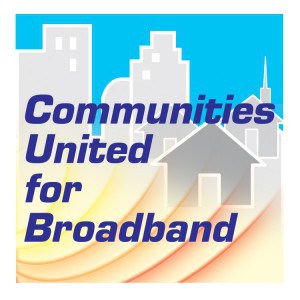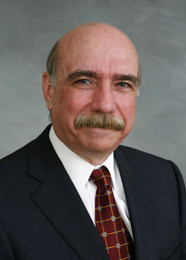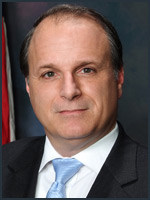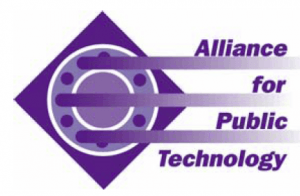 When millions of dollars are at stake, some commercial broadband providers will stop at nothing to preserve the duopoly they enjoy across most of North Carolina. Their formula for success — delivering the least amount of service at the highest possible price. When communities like Wilson and Salisbury decided that formula wasn’t working for them, they embarked on their own municipally-built, fiber-based broadband networks. It wasn’t something either community took lightly. They asked, they pleaded, they begged for better broadband service from incumbent providers who decided what they were providing was already good enough.
When millions of dollars are at stake, some commercial broadband providers will stop at nothing to preserve the duopoly they enjoy across most of North Carolina. Their formula for success — delivering the least amount of service at the highest possible price. When communities like Wilson and Salisbury decided that formula wasn’t working for them, they embarked on their own municipally-built, fiber-based broadband networks. It wasn’t something either community took lightly. They asked, they pleaded, they begged for better broadband service from incumbent providers who decided what they were providing was already good enough.
The biggest shock of these providers’ lives came when both communities decided to build better networks themselves.
Now, the commercial providers who are challenged to upgrade to compete are instead spending enormous sums of money in the North Carolina legislature to put a stop to these municipal projects. Why spend money on upgrading when you can simply ban the potential competition?
Last year, Stop the Cap! teamed up with other consumer advocates to put a stop to legislation custom-written by the cable industry and introduced by a very-compliant state legislator. When our readers and others called to complain, some found the phone handed off to a cable lobbyist literally sitting in his office!
Your outrage over paying big bills for bad service from too few providers was heard in Raleigh, and the legislation was de-fanged and buried in a committee charged with “studying the issue.” The legislator who introduced it resigned under an ethical cloud last fall.
Unfortunately for consumers in North Carolina, there is always someone else willing to pick up where the last one who sold his constituents down the river left off.
Our North Carolina issues coordinator Jay Ovittore, who is now working with Communities United for Broadband to promote better broadband, is here with a report about the latest developments in North Carolina and a Call to Action! for all of our readers. Preserving successful municipal broadband projects and those working to get off the ground protects this option for every community faced with intransigent broadband providers who won’t improve service. — Phillip Dampier
As I told everyone on Stop the Cap! last summer, they would be back.
They are, and now they’ve shown us their cards.
North Carolina’s incumbent cable and phone companies are once again trying to ram through an anti-municipal broadband bill, and their timing is designed to rush it through committee before a groundswell of consumer opposition has a chance to build. Time is short — the bill will be taken up April 21st in the Revenue Laws Study Committee, so your immediate action is imperative!
This year’s push for anti-consumer legislation comes courtesy of Senator Daniel G. Clodfelter (D-Mecklenburg County).
He reportedly wants a moratorium on all municipal broadband deployments on the alleged basis that these are bad for the private sector and will harm state tax revenue. Hello? Virtually every municipal broadband project underway fuels job creation as crews work to install the fiber optic networks that will come to represent an economic catalyst and job creator. When communities no longer have to turn away digital economy jobs lost because of inadequate broadband by existing providers, that’s an economic victory for hard-pressed North Carolina, where unemployment is at 11.2 percent these days — 10th worst in the country.
The FCC’s National Broadband Plan has prioritized stimulating the deployment of ultra high-speed broadband (100/50Mbps) service to 100 million households in ten years, so why are some in our legislature standing in the way of better broadband options for North Carolina? You need to ask them!
Just look at Wilson’s community broadband project for evidence of a broadband success story. Wilson pleaded with providers to deliver 21st century broadband service to no avail. So Wilson did it themselves.
Cable and phone companies howled in protest. They even brought in their astroturfing friends from corporate-funded groups like FreedomWorks and Americans for Prosperity to try and hookwink consumers into opposing municipal broadband.
It’s just another classic case of providers not wanting to spend money to upgrade their networks to compete. Communities like Wilson getting the broadband service they deserve are good examples of why the industry is afraid such projects could spread.
[flv width=”480″ height=”292″]http://www.phillipdampier.com/video/Save NC Broadband Catherine Rice Compares Rates 12-2009.mp4[/flv]
Watch what happens when a municipal provider competes for your business. Catherine Rice of Action Audits delivered the undeniable proof at a December NC House Select Committee on High Speed Internet Access in Rural and Urban Areas hearing, showing while cable and broadband rates across the state march ever higher, they strangely don’t in Wilson, where GreenLight, the municipal alternative, keeps rates in check. Click here to download a PDF copy of the slides Rice refers to in her presentation. (11 minutes)
Some members of the legislature will stand with their constituents and vote against this anti-consumer nightmare. Some may not be fully informed on the issues and are only hearing the telecommunications industry talking points. For some others, I’m afraid it’s a case of following the money.
The telecommunications industry in North Carolina is very generous to their benefactors, only too willing to return the favor writing the industry’s wish-list into state law.
You will recognize some of the names from the Follow the Money series I wrote last year (read Part 1, Part 2 and Part 3). It’s a new year, so Part 4 will follow in the coming days, updating the financial contributions of incumbents and introducing new members and how much they’ve accepted from this industry.
Ironically, one of the legislators, Rep. Pryor Allan Gibson, III works as a contractor for Time Warner Cable! His vote will be particularly interesting to follow.
North Carolina Call to Action!
Phone calls are always the most effective, and they are timely coming just days before the April 21st meeting of the Revenue Laws Study Committee. But you can also e-mail representatives (and that’s not a bad idea even if you also called). North Carolina deserves world-class, next-generation broadband. Don’t allow a handful of the same companies overcharging you for today’s slow service strangle your best chance for competition!
Here is a sample e-mail message to send to all of the Committee members involved:
Subject: Don’t You Dare Vote for an Anti-Municipal Broadband Bill!
Message: As a consumer, I was disturbed to hear the Revenue Laws Study Committee was prepared to vote for an industry-sponsored Anti-Municipal Broadband Bill on April 21st. Please do not vote for this or any other bill that removes competitive choice for broadband service. Our local communities should not be stopped from deploying 21st century fiber to the home systems other providers refuse to deliver. Such fiber networks create jobs, keep North Carolina business competitive, and stimulate economic development, which will deliver needed tax revenue.
The same providers backing this bill that are not delivering service to unserved communities, or offer inadequate service in others, have had a decade to deliver the service municipal providers are actually providing today in our state. Instead of delivering, they’ve offered a litany of excuses and now want special legislative protections to preserve their entrenched market position.
As a consumer, I am fed up with relentless rate increases year after year. In communities like Wilson, where a municipal provider delivers excellent service, the rate increases from cable and phone companies have stopped. A vote for this bill guarantees we’ll be paying higher and higher cable and phone bills indefinitely, and that’s something I would definitely remember come Election Day. Make no mistake — this proposed legislation is an obvious gift to the telecommunications industry at the expense of all of your constituents, including myself. That’s why I am confident you will stand up and make your opposition heard to this and similar measures.
At a time when the FCC’s National Broadband Plan envisions 100 million households with ultra-fast broadband service delivering economic benefits, it’s ironic our state legislature is even considering impeding the very providers that are on track to fulfill that goal.
With 11.2 percent unemployment — the 10th worst in the country, now is not the time to put a moratorium on North Carolina’s communities considering a better future through municipally-provided broadband.
With all this in mind, I am confident you will deliver for constituents like myself and oppose these industry-backed bills. I look forward to hearing from you soon on this issue.
For best results, use your own wording and talk about the broadband market in your community. You can reference the excitement over Google’s fiber to the home project.
Here are the Committee members to write or call, including their district area and what they do for a living:
(Please send individual messages to members, even if the contents are essentially the same — avoid simply CC’ing a single message to every representative.)
- Sen. Daniel Gray Clodfelter (Co-Chair) Mecklenberg [email protected] (919) 715-8331 Democrat (704) 331-1041 Attorney
- Sen. Daniel T. Blue, Jr. Wake [email protected] (919) 733-5752 Democrat (919) 833-1931 Attorney
- Sen. Peter Samuel Brunstetter Forsyth [email protected] (919) 733-7850 Republican (336) 747-6604 Attorney
- Sen. Fletcher Lee Hartsell, Jr. Cabarrus, Iredell [email protected] (919) 733-7223 Republican (704) 786-5161 Attorney
- Sen. David W. Hoyle Gaston [email protected] (919) 733-5734 Democrat (704) 867-0822 Real Estate Developer/Investor
- Sen. Samuel Clark Jenkins Edgecomb, Martin, Pitt [email protected] (919) 715-3040 Democrat (252) 823-7029 W.S. Clark Farms
- Sen. Josh Stein Wake [email protected] (919)715-6400 Democrat (919)715-6400 Lawyer
- Sen. Jerry W. Tillman Montgomery, Randolph [email protected] (919) 733-5870 Republican (336) 431-5325 Ret’d school teacher
- Rep. Paul Luebke (Co-Chair) Durham [email protected] 919-733-7663 Democrat 919-286-0269 College Teacher
- Rep. Harold J. Brubaker Randolph [email protected] 919-715-4946 Republican 336-629-5128 Real Estate Appraiser
- Rep. Becky Carney Mecklenberg [email protected] 919-733-5827 Democrat 919-733-5827 Homemaker
- Rep. Pryor Allan Gibson, III Anson, Union [email protected] 919-715-3007 Democrat 704-694-5957 Builder/TWC contractor
- Rep. Dewey Lewis Hill Brunswick, Columbus [email protected] 919-733-5830 Democrat 910-642-6044 Business Exec (Navy)
- Rep. Julia Craven Howard Davie, Iredell [email protected] 919-733-5904 Republican 336-751-3538 Appraiser, Realtor
- Rep. Daniel Francis McComas New Hanover [email protected] 919-733-5786 Republican 910-343-8372 Business Executive
- Rep. William C. McGee Forsyth [email protected] 919-733-5747 Republican 336-766-4481 Retired (Army)
- Rep. William L. Wainwright Craven, Lenoir [email protected] 919-733-5995 Democrat 252-447-7379 Presiding Elder
- Rep. Jennifer Weiss Wake [email protected] 919-715-3010 Democrat 919-715-3010 Lawyer-Mom


 Subscribe
Subscribe









